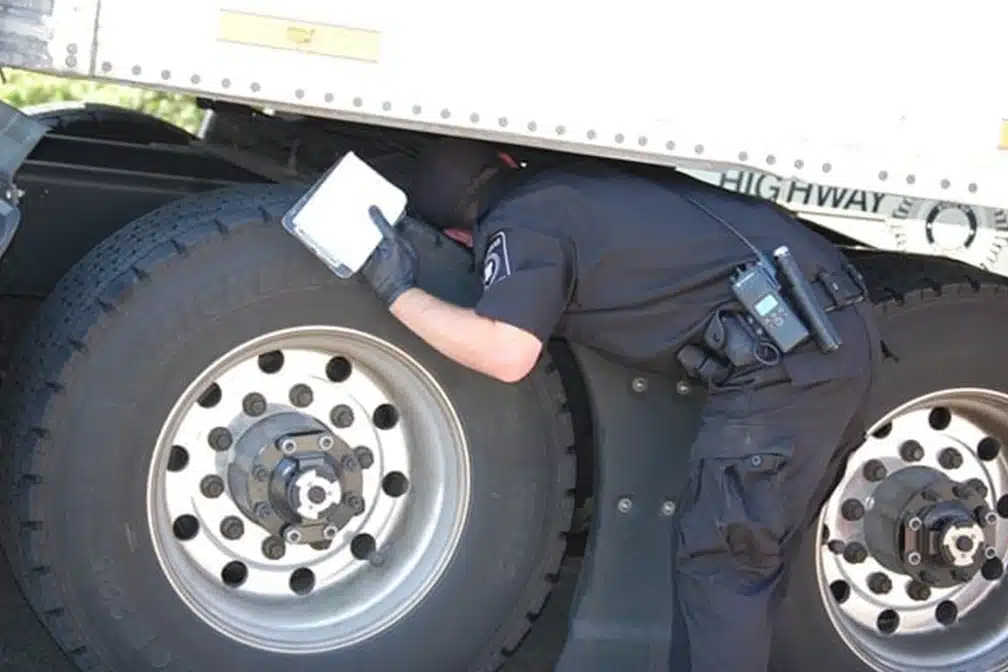Trucker Safety: Learn How to Navigate on Icy Roads in this Guide as We Discuss the Dangers of Black Ice, Safe Driving Tips, and Winter Preparedness.
More
May 19, 2024 3:47 pm

The Commercial Vehicle Safety Alliance (CVSA) Brake Safety Week is an annual event dedicated to highlighting the significance of brake systems in commercial motor vehicles (CMVs). Taking place from August 20-26, this week-long campaign emphasizes brake lining and pad violations, aiming to enhance road safety by identifying and addressing brake-related out-of-service violations. This article will delve into the key aspects of Brake Safety Week, including inspection procedures, preparation, and the overall objective of the Operation Airbrake program.
During Brake Safety Week, CVSA-certified inspectors play a vital role in conducting comprehensive inspections of CMV brake systems. The inspection process focuses on various components to ensure their optimal functionality and performance. By identifying any brake-related violations, inspectors take necessary action to address the issues and enforce corrective measures before allowing vehicles back on the road.
The brake portion of Level I and Level V Inspections encompasses several critical checks, including:
To ensure the success of Brake Safety Week, proactive steps must be taken by drivers and motor carriers. The CVSA emphasizes the importance of brake safety awareness, education, and outreach as integral elements of this campaign. By providing transparency regarding the inspection procedures, drivers and motor carriers are encouraged to take responsibility for maintaining safe and compliant commercial motor vehicles.
CVSA provides resources to assist in Brake Safety Week preparation, including:
Brake Safety Week is an integral part of CVSA’s Operation Airbrake Program. This program aims to reduce the occurrence of highway crashes caused by faulty braking systems in CMVs. By conducting roadside inspections and educating drivers, mechanics, owner-operators, and other stakeholders, Operation Airbrake emphasizes the significance of proper brake inspection, maintenance, and operation.
The CVSA Brake Safety Week, scheduled for August 20-26, serves as a critical reminder of the importance of brake system inspections and maintenance in commercial motor vehicles. By identifying and addressing brake-related violations, this initiative significantly enhances road safety. Through proactive measures, education, and outreach, drivers and motor carriers can contribute to a safer transportation industry. The Operation Airbrake Program reinforces the commitment to reducing highway crashes caused by faulty braking systems, promoting a culture of safety and compliance in the commercial vehicle sector.
For more information and articles from the trucking industry, follow us on Facebook or subscribe to our Truck Driver News newsletter.
Trucker Safety: Learn How to Navigate on Icy Roads in this Guide as We Discuss the Dangers of Black Ice, Safe Driving Tips, and Winter Preparedness.
MoreTruck drivers often face numerous challenges when sharing the road with other drivers. By examining the nature of these challenges and suggesting practical strategies, we can enhance
MoreThe recent proposal by the National Highway Traffic Safety Administration (NHTSA) and the Federal Motor Carrier Safety Administration (FMCSA) to mandate Automatic Emergency Braking (AEB) systems on
MoreEach rig has its unique story; one truck stands out for its striking appearance and the profound meaning behind its
MoreExploring the Hurdles of Trucker Health on the Road and Effective Strategies to Foster Their Well-Being and Happiness On and
MoreTruck Driver News – U.S. Departments of Transportation Below is a list of the U.S Department of Transportation (DOT) or
MoreIn recent years, the automotive industry has faced numerous challenges, from technological advancements to regulatory changes. One of the most
MoreThe modern highways, once bustling with the steady rhythm of trucks transporting goods across the nation, have encountered a few
More